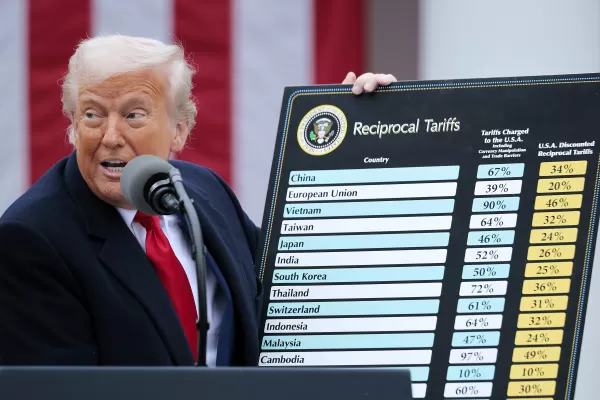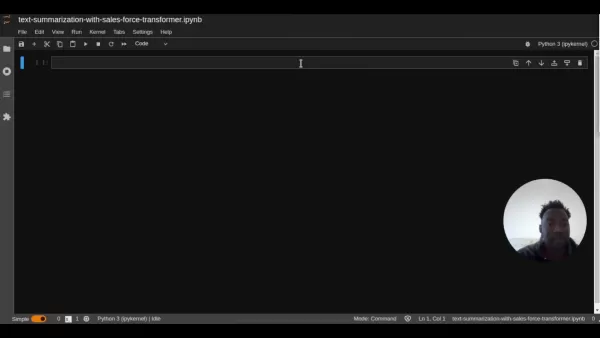Public comments to White House on AI policy touch on copyright, tariffs

Overwhelming Response to the White House's AI Policy
The White House's draft national AI policy, referred to as the AI Action Plan, has sparked significant interest, drawing over 10,000 comments from individuals, industry groups, and local governments. The Office of Science and Technology Policy (OSTP) released these comments in a hefty 18,480-page PDF, showcasing the diverse range of opinions on the future of AI in the U.S.
Shifting AI Priorities Under Trump
Amidst this flood of feedback, the Trump administration is recalibrating the nation's AI strategy. Earlier this year, President Trump revoked an AI Executive Order established by his predecessor, Joe Biden. Biden's directive had tasked the National Institute of Standards and Technology with developing guidelines to help companies address model flaws, including biases. Critics from Trump's camp deemed these requirements burdensome, arguing they compelled companies to reveal proprietary information.
Following the repeal, Trump issued a new order emphasizing the development of AI that's free from "ideological bias" and supports "human flourishing, economic competitiveness, and national security." Notably absent from Trump's directive was any mention of tackling AI discrimination, a focal point of Biden's policy.
Key Issues Highlighted in Public Comments
The comments submitted to the White House reveal the high stakes in the AI arena. A common concern among some is the exploitative nature of AI, particularly how it's trained on creative works without compensating the original artists. These voices urged the Trump administration to bolster copyright protections. On the flip side, venture capitalists like Andreessen Horowitz have criticized content creators for obstructing AI progress.
Tech giants such as Google and OpenAI have also advocated for more lenient regulations on AI training data in their earlier feedback on the AI Action Plan.
Calls for Increased Research Funding
Several organizations, including Americans for Prosperity, The Future of Life Institute, and the American Academy of Nursing, have stressed the need for more investment in AI research, especially at a time when federal science grants are being cut back. AI experts have voiced concerns over these reductions, which have been driven by policies from billionaire Elon Musk's Department of Government Efficiency.
Concerns Over Trade Policies
Some commenters pointed out that the Trump administration's broad tariffs on foreign goods could hinder domestic AI development. The Data Center Coalition, representing the data center industry, warned that tariffs on infrastructure components could "limit and slow" AI investments in the U.S. Similarly, the Information Technology Industry Council, with members like Amazon, Intel, and Microsoft, called for "smart" tariffs that protect local industries without igniting trade wars detrimental to consumers.
AI Censorship and Bias
Only a few comments touched on "AI censorship," a topic of significant interest to Trump's inner circle. Elon Musk and David Sacks, a prominent figure in crypto and AI, have claimed that popular AI chatbots, such as ChatGPT, censor conservative viewpoints. Ironically, Musk's own AI venture, xAI, has faced challenges in developing a chatbot that remains neutral across political spectrums, underscoring the complex nature of AI bias.
Building the AI Policy Team
President Trump has been actively forming an AI policy team. In March, the Senate confirmed Michael Kratsios as the director of OSTP, a role he previously held with a focus on AI during Trump's first term. Late last year, Trump appointed former venture capitalist Sriram Krishnan as the senior policy advisor for AI at the White House.
Related article
 How ChatGPT Works: Capabilities, Applications, and Future Implications
The rapid evolution of artificial intelligence is transforming digital interactions and communication. Leading this transformation is ChatGPT, an advanced conversational AI that sets new standards for natural language processing. This in-depth examin
How ChatGPT Works: Capabilities, Applications, and Future Implications
The rapid evolution of artificial intelligence is transforming digital interactions and communication. Leading this transformation is ChatGPT, an advanced conversational AI that sets new standards for natural language processing. This in-depth examin
 Salesforce’s Transformer Model Guide: AI Text Summarization Explained
In an era where information overload is the norm, AI-powered text summarization has become an indispensable tool for extracting key insights from lengthy documents. This comprehensive guide examines Salesforce's groundbreaking AI summarization techno
Salesforce’s Transformer Model Guide: AI Text Summarization Explained
In an era where information overload is the norm, AI-powered text summarization has become an indispensable tool for extracting key insights from lengthy documents. This comprehensive guide examines Salesforce's groundbreaking AI summarization techno
 Generate Unique Brand Names Instantly with Namflix AI Business Name Generator - Free Tool!
Crafting Your Perfect Brand Identity with AIIn today's competitive digital marketplace, establishing a distinctive brand identity starts with choosing the perfect name - one that captures your unique value proposition while resonating with your targe
Comments (13)
0/200
Generate Unique Brand Names Instantly with Namflix AI Business Name Generator - Free Tool!
Crafting Your Perfect Brand Identity with AIIn today's competitive digital marketplace, establishing a distinctive brand identity starts with choosing the perfect name - one that captures your unique value proposition while resonating with your targe
Comments (13)
0/200
![FrankJackson]() FrankJackson
FrankJackson
 August 26, 2025 at 9:01:17 AM EDT
August 26, 2025 at 9:01:17 AM EDT
It's wild that over 10,000 people chimed in on the AI Action Plan! 😮 Makes me wonder how they'll balance copyright concerns with innovation—feels like a tightrope walk.


 0
0
![JamesLopez]() JamesLopez
JamesLopez
 August 25, 2025 at 3:01:23 PM EDT
August 25, 2025 at 3:01:23 PM EDT
Wow, 10,000+ comments on the AI Action Plan? That's wild! It shows how much people care about where AI's heading. I wonder how they'll balance innovation with copyright concerns—feels like a tightrope walk! 😅


 0
0
![WillieRoberts]() WillieRoberts
WillieRoberts
 August 22, 2025 at 7:01:15 AM EDT
August 22, 2025 at 7:01:15 AM EDT
Wow, 10,000 comments on the AI Action Plan? That's wild! It's cool to see so many people care about AI policy, but I wonder how many of those are just bots or lobbyists pushing their own agendas. 😅 Curious to see how copyright and tariffs shake out!


 0
0
![LarryScott]() LarryScott
LarryScott
 August 17, 2025 at 1:01:00 PM EDT
August 17, 2025 at 1:01:00 PM EDT
Wow, 10,000+ comments on the AI Action Plan? That's wild! People are clearly passionate about AI's future—hope they address the copyright mess it’s stirring up! 😅


 0
0
![EdwardWalker]() EdwardWalker
EdwardWalker
 August 12, 2025 at 9:00:59 AM EDT
August 12, 2025 at 9:00:59 AM EDT
Wow, 10,000 comments on the AI Action Plan? That's a lot of voices weighing in! I'm curious how they'll balance copyright concerns with innovation. Sounds like a tightrope walk! 😄


 0
0
![FrankKing]() FrankKing
FrankKing
 August 2, 2025 at 11:08:37 AM EDT
August 2, 2025 at 11:08:37 AM EDT
Wow, 10,000 comments on the AI Action Plan? That's wild! People really care about AI's future, especially on copyright issues. I wonder how they'll balance innovation with protecting creators. 🤔


 0
0

Overwhelming Response to the White House's AI Policy
The White House's draft national AI policy, referred to as the AI Action Plan, has sparked significant interest, drawing over 10,000 comments from individuals, industry groups, and local governments. The Office of Science and Technology Policy (OSTP) released these comments in a hefty 18,480-page PDF, showcasing the diverse range of opinions on the future of AI in the U.S.
Shifting AI Priorities Under Trump
Amidst this flood of feedback, the Trump administration is recalibrating the nation's AI strategy. Earlier this year, President Trump revoked an AI Executive Order established by his predecessor, Joe Biden. Biden's directive had tasked the National Institute of Standards and Technology with developing guidelines to help companies address model flaws, including biases. Critics from Trump's camp deemed these requirements burdensome, arguing they compelled companies to reveal proprietary information.
Following the repeal, Trump issued a new order emphasizing the development of AI that's free from "ideological bias" and supports "human flourishing, economic competitiveness, and national security." Notably absent from Trump's directive was any mention of tackling AI discrimination, a focal point of Biden's policy.
Key Issues Highlighted in Public Comments
The comments submitted to the White House reveal the high stakes in the AI arena. A common concern among some is the exploitative nature of AI, particularly how it's trained on creative works without compensating the original artists. These voices urged the Trump administration to bolster copyright protections. On the flip side, venture capitalists like Andreessen Horowitz have criticized content creators for obstructing AI progress.
Tech giants such as Google and OpenAI have also advocated for more lenient regulations on AI training data in their earlier feedback on the AI Action Plan.
Calls for Increased Research Funding
Several organizations, including Americans for Prosperity, The Future of Life Institute, and the American Academy of Nursing, have stressed the need for more investment in AI research, especially at a time when federal science grants are being cut back. AI experts have voiced concerns over these reductions, which have been driven by policies from billionaire Elon Musk's Department of Government Efficiency.
Concerns Over Trade Policies
Some commenters pointed out that the Trump administration's broad tariffs on foreign goods could hinder domestic AI development. The Data Center Coalition, representing the data center industry, warned that tariffs on infrastructure components could "limit and slow" AI investments in the U.S. Similarly, the Information Technology Industry Council, with members like Amazon, Intel, and Microsoft, called for "smart" tariffs that protect local industries without igniting trade wars detrimental to consumers.
AI Censorship and Bias
Only a few comments touched on "AI censorship," a topic of significant interest to Trump's inner circle. Elon Musk and David Sacks, a prominent figure in crypto and AI, have claimed that popular AI chatbots, such as ChatGPT, censor conservative viewpoints. Ironically, Musk's own AI venture, xAI, has faced challenges in developing a chatbot that remains neutral across political spectrums, underscoring the complex nature of AI bias.
Building the AI Policy Team
President Trump has been actively forming an AI policy team. In March, the Senate confirmed Michael Kratsios as the director of OSTP, a role he previously held with a focus on AI during Trump's first term. Late last year, Trump appointed former venture capitalist Sriram Krishnan as the senior policy advisor for AI at the White House.
 How ChatGPT Works: Capabilities, Applications, and Future Implications
The rapid evolution of artificial intelligence is transforming digital interactions and communication. Leading this transformation is ChatGPT, an advanced conversational AI that sets new standards for natural language processing. This in-depth examin
How ChatGPT Works: Capabilities, Applications, and Future Implications
The rapid evolution of artificial intelligence is transforming digital interactions and communication. Leading this transformation is ChatGPT, an advanced conversational AI that sets new standards for natural language processing. This in-depth examin
 Salesforce’s Transformer Model Guide: AI Text Summarization Explained
In an era where information overload is the norm, AI-powered text summarization has become an indispensable tool for extracting key insights from lengthy documents. This comprehensive guide examines Salesforce's groundbreaking AI summarization techno
Salesforce’s Transformer Model Guide: AI Text Summarization Explained
In an era where information overload is the norm, AI-powered text summarization has become an indispensable tool for extracting key insights from lengthy documents. This comprehensive guide examines Salesforce's groundbreaking AI summarization techno
 Generate Unique Brand Names Instantly with Namflix AI Business Name Generator - Free Tool!
Crafting Your Perfect Brand Identity with AIIn today's competitive digital marketplace, establishing a distinctive brand identity starts with choosing the perfect name - one that captures your unique value proposition while resonating with your targe
Generate Unique Brand Names Instantly with Namflix AI Business Name Generator - Free Tool!
Crafting Your Perfect Brand Identity with AIIn today's competitive digital marketplace, establishing a distinctive brand identity starts with choosing the perfect name - one that captures your unique value proposition while resonating with your targe
 August 26, 2025 at 9:01:17 AM EDT
August 26, 2025 at 9:01:17 AM EDT
It's wild that over 10,000 people chimed in on the AI Action Plan! 😮 Makes me wonder how they'll balance copyright concerns with innovation—feels like a tightrope walk.


 0
0
 August 25, 2025 at 3:01:23 PM EDT
August 25, 2025 at 3:01:23 PM EDT
Wow, 10,000+ comments on the AI Action Plan? That's wild! It shows how much people care about where AI's heading. I wonder how they'll balance innovation with copyright concerns—feels like a tightrope walk! 😅


 0
0
 August 22, 2025 at 7:01:15 AM EDT
August 22, 2025 at 7:01:15 AM EDT
Wow, 10,000 comments on the AI Action Plan? That's wild! It's cool to see so many people care about AI policy, but I wonder how many of those are just bots or lobbyists pushing their own agendas. 😅 Curious to see how copyright and tariffs shake out!


 0
0
 August 17, 2025 at 1:01:00 PM EDT
August 17, 2025 at 1:01:00 PM EDT
Wow, 10,000+ comments on the AI Action Plan? That's wild! People are clearly passionate about AI's future—hope they address the copyright mess it’s stirring up! 😅


 0
0
 August 12, 2025 at 9:00:59 AM EDT
August 12, 2025 at 9:00:59 AM EDT
Wow, 10,000 comments on the AI Action Plan? That's a lot of voices weighing in! I'm curious how they'll balance copyright concerns with innovation. Sounds like a tightrope walk! 😄


 0
0
 August 2, 2025 at 11:08:37 AM EDT
August 2, 2025 at 11:08:37 AM EDT
Wow, 10,000 comments on the AI Action Plan? That's wild! People really care about AI's future, especially on copyright issues. I wonder how they'll balance innovation with protecting creators. 🤔


 0
0





























